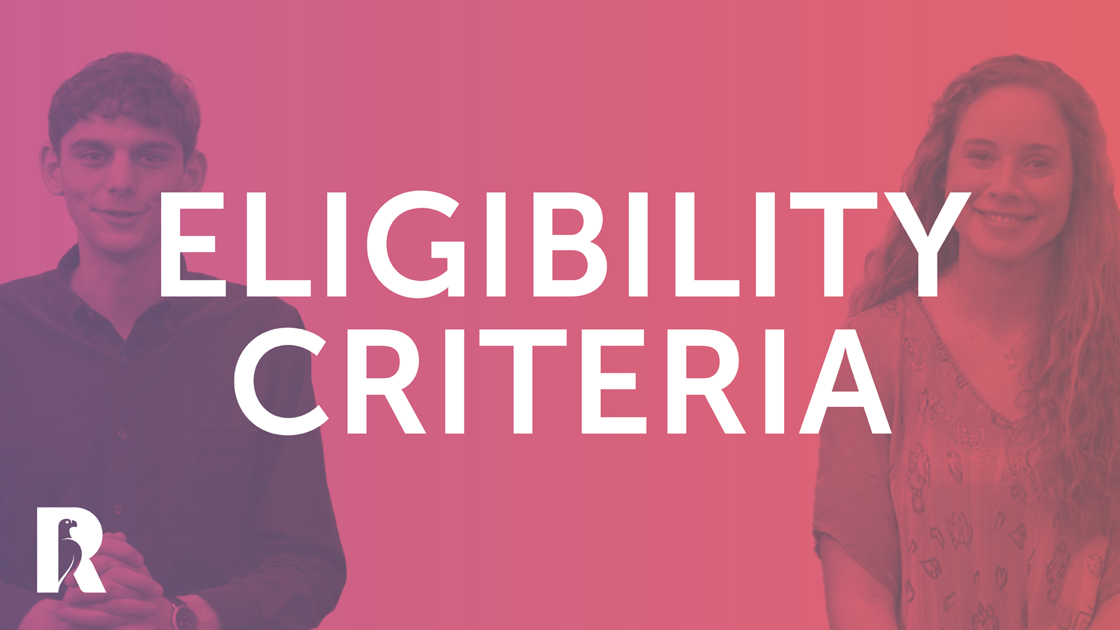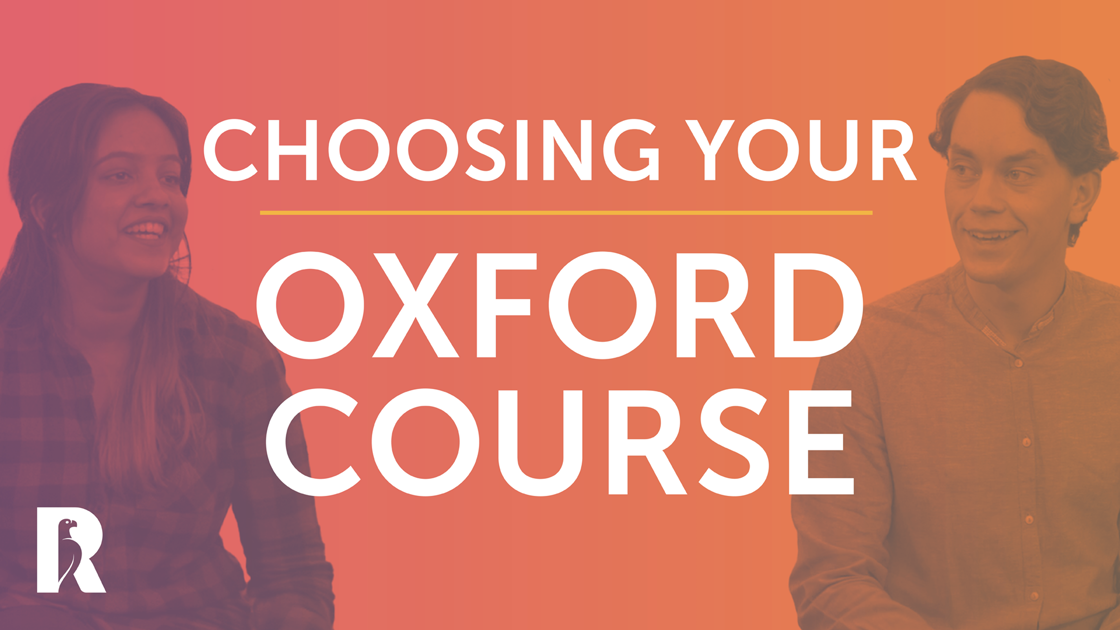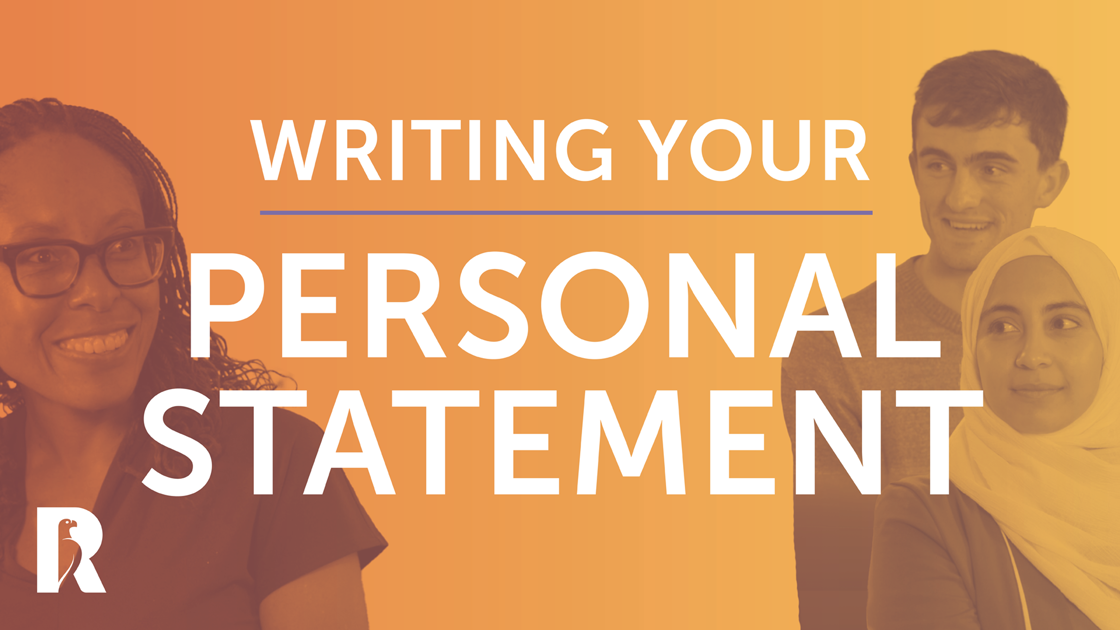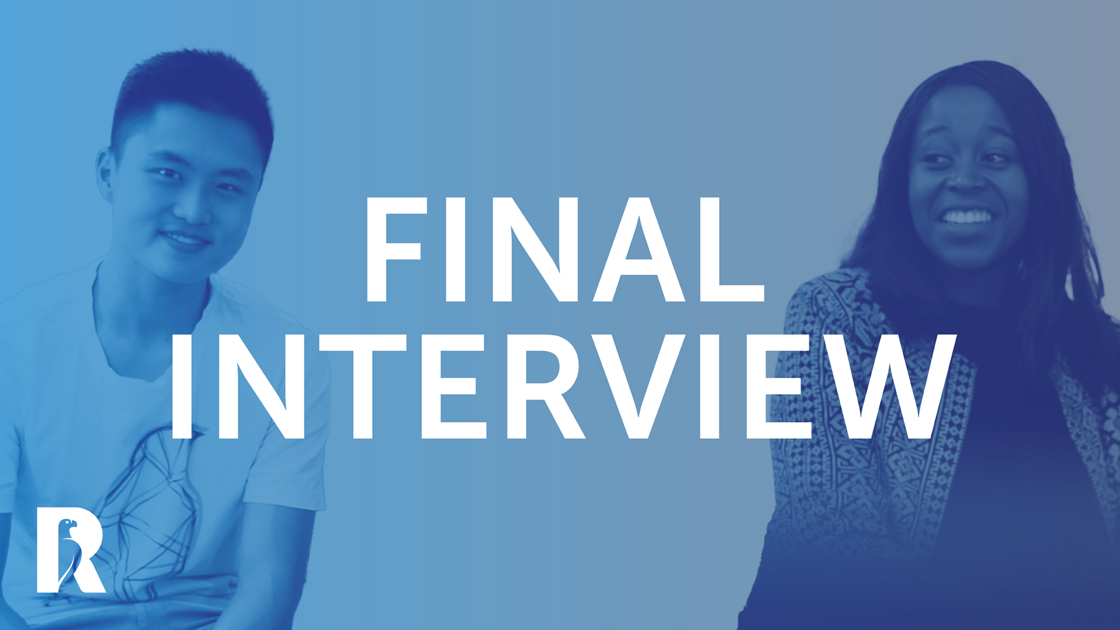You are here : Scholarships > Application Overview
Application Process
Navigate below to understand each stage of the application process.
Application Overview
The Rhodes Scholarship is a life-changing postgraduate opportunity which enables talented young people from around the world to study at the University of Oxford, and actively fosters lifelong learning and fellowship.
Our application process consists of multiple stages, and this video series will guide you through each step with helpful tips and advice from Rhodes Scholars themselves.

Rhodes Scholarship Applications Playlist
So you're thinking about applying to the Rhodes Scholarship.
This is a playlist to guide you through the Rhodes application process. No one here assumed they would win the scholarship. If you think even there's a slightest chance that you could be interested in studying at Oxford, just go for it.
There are six aspects of the application process: eligibility, choice of Oxford course, personal & academic statement, reference letters, social engagement, and finally the personal interview.
You never know what's going to happen. Just apply. Nobody thinks they're going to get it. Just give it a shot!
The broad eligibility criteria of the Rhodes Scholarship; definitive eligibility criteria are listed in the relevant Information for Candidates document for your country/region. Check your eligibility here.

Hi, I'm Timur.
Hi, I'm Simone.
And we'll be talking about eligibility criteria. So if you're a citizen of a single Rhodes jurisdiction, such as Germany, in my case, then that's where you should apply.
Or the Commonwealth Caribbean in my case. But there are some variants to this.
You should be over 18 and under 24 when you apply.
You should have a bachelor's degree and you should also meet the English language requirements.
But don't worry, there are variants of each constituency, which is why you should check out the Information for Candidates on the website. It's all there.
Literary and scholastic attainment is one often mentioned. What does that mean to you?
Yeah, so academic excellence, sometimes we just think that it means all As, but really it means being able to critically engage with the material you've been learning over the past couple of years.
Another one is energy to use one's potential to the full. That does not mean that you have to be great at sports. My main physical activity is the fact that my nose runs from time to time.
For me, energy to use my potential to the full means being active in student government, being politically active, caring about my community.
I think they just mean putting efforts into actualising your talent. So there are Rhodes Scholars in our community who are artists, musicians, debaters, dancers, or athletes. And so I think that it's a lot more nuanced than just being sporty in a sense.
The criteria are your moral force of character, your instinct to lead, your devotion to truth and courage and duty, sympathy for and protection of the weak. But these are very nuanced characteristics that you should contextualise to your situation. It looks different for different people.
Yeah, it's really about making these criteria your own and also thinking critically about the spirit of the scholarship in the contemporary world and how that applies to you.
Yeah. How does the vision of the scholarship align with your vision for your life?
And lastly, we really want to encourage you to apply.
Yeah, and apply wholeheartedly and meaningfully.
Some key considerations when choosing the right course at University of Oxford.
Resources

Hi everyone. I'm Mary.
And I'm Saul.
And we are going to talk to you about how to go about choosing your Oxford course.
I found it quite difficult actually.
I studied international relations as an undergrad,
and so when I came to Oxford, I had a very wide range of choices.
I could have done IR or global governance,
African studies, development studies,
and I think that's why it's quite daunting to make a choice here at Oxford.
You could do a one year master's, like an MSc, two year MPhil, a three year DPhil.
So all these are listed on the website. So there is a lot of research that goes into it even when you're choosing your course.
And I think it's really important for the applicants to know that.
For some people an MPhil is perfect or a DPhil is perfect and they might hate a one-year master's degree.
And for others, a one-year master's degree is perfect because it gives them the practical tools that they need.
The selection panel is looking for candidates who kind of know what the course they're pursuing will do for them later on.
What is their vision for their life and how have they chosen Oxford?
How have they chosen this particular course? How does it fit into their trajectory?
And I think a lot of applicants are also confused about how many years of funding does Rhodes give and things like that.
And even that is specifically mentioned in the Conditions of Tenure.
You can also decide which course or combination of courses that you want to do.
It's not really important for them to know the specificities of what every year at Oxford or in the future will entail for them.
So what you really need to do is just some introspection about what you want to do later on, and which course will give you the tools that you need to accomplish that.

The original Rhodes characteristics really looked for the instinct to lead, truth, courage, devotion to duty, kindliness, care for the weak. How did you think about those qualities as you are applying for the Rhodes Scholarship application?
The role of those qualities is not necessarily that you've mastered a single one of them and you've got weaknesses in other areas. I think it's that you're serious about the pursuit of all of them.
It's not about checking them all off the list. It's about showing that there are parts of you that strongly exemplify these characters, but at the same time, you're not a finished product, right? So you're going to work on others and the Rhodes community is going to help you with that.
The Rhodes Personal Statement has three prompts.
- Which Rhodes Scholar quality do you display most strongly?
- What would you like to learn from the Rhodes and wider community in Oxford?
- From your place in the world, what is humanity's greatest need?
So those are really big questions and can be quite daunting questions. How would you think about each of those?
You're trying to create an image of what you look like in action. What do you bring to the table? What's yourself, what maybe talents or energy or leadership capability or devotion to others do you have? How are you able to work with others? Are you someone that's constantly engaging with the community around you in order to learn and grow alongside other people? And then what is all of that for? And that's standing up for the world. My point of view is very local. I have lived within the same three mile geographic radius in Arkansas. All I want to do is contribute to my state and hopefully rural communities in the country, but very locally focused, and I made a case around that. So it's not about tackling and solving the entire world's problem. It's about trying to make a contribution, an area that is deeply meaningful to you and you believe deeply matters.
Coleman and I received some pushback about things that we wanted to say in our personal statements, but this is what we felt strongly about. This is what I felt strongly about, and I felt like I had to put this in my personal statement. If it was going to make others uncomfortable, so be it. So I would say don't shy away from being authentic and talking about the situations that made you who you are.
Has Oxford changed you?
You come here with an idea of who you are, and I feel like it's like this core foundation, and then you get here and within a month that entire core just thrown in the air, and it's like you're just like, those are all pieces of me that are being challenged strongly by all these new ideas and people who have ideas that excite and inspire you. What I'm hoping to be doing is slowly reroot these ideas and then go home with even a stronger sense of self that's more informed by the world and by others.
There's an expectation that the selection committees are looking for fully baked individuals, and none of us are fully baked. We're all sort in the process of evolution and development. How did you write about your flaws?
I think that's how I ended my statement saying that I don't actually have all the skill sets I need to achieve these things I want to do. That's why I need to come to Oxford, and that's why I want to be a Rhodes Scholar.
Is there a formula to being a Rhodes Scholar? Do you fit the formula?
No, of course not. There's no formula. That's why I've questioned myself and I've been challenged so much since I came here by Rhodes Scholars. Every one of them is just completely different. And it'll open your eyes to something that you haven't thought about before.
Writing Your Academic Statement
How can you write about your academic & research interests?

Hi, my name is Saman Tariq Malik, and I'm from Pakistan.
I'm Morgan Moore. I'm from Indiana in the US.
And we're going to talk to you about the reference letter.
I started my process by writing out the names of every single person I knew who I thought would serve as a potential reference. So that included basically everybody but my friends, all of my professors, all of my professional supervisors, and not your family. All my mentors, not my family, although that would've been really handy.
I went for those professors who had worked with me extensively, who were aware of my work, but also of my research interests and long-term goals with regards to where I want to be, let's say five to 10 years after I complete my studies.
I thought, okay, well here are the people that I think will make the strongest claims or who know me best out of all these people, or I also thought about how the reference letters matched up with each other, so this person will say how I was on a campaign, for instance, so I don't want to include another campaign reference. I want this professor to say something about how I'm really studious. So I came up with all of that, contacted them, emailed them early on in the summer, followed up, followed up, followed up, followed up.
It is, at the end of the day, your responsibility to make sure that the reference letter is submitted on time.
Don't be afraid to reach out and follow up with your recommenders, especially if they aren't responsive or you don't think that they remember the timeline. We get notifications via the online portal that says, this person has submitted or this person hasn't, on the Embark website.
For some people, the recommendation letter process is the hardest part of the application. Others, it's an easy part, but I think bottom line is if you give yourself enough time, come up with backups, realize that it's a lot of responsibility for you, but also for other people and just sort of staying calm throughout the process, I think it's easily manageable.

Hi, I'm Nur.
And I'm Cameron.
And we're going to talk about the social engagement event. I actually didn't know anything about the social engagement thing. I was shortlisted, I went to Jordan for the interviews and then they sent us an email telling us that you have this dinner and that's it. So I didn't really know what to expect.
The social engagement was just a reception and a meal where you got the opportunity to meet some of the panelists, some of the former Rhodes Scholars and a lot of the different applicants that were involved. And it happens before the interview, and you just get a chance to talk to everybody in a relaxed social setting.
You don't have to impress, you don't have to perform. You've already impressed them by your CV and that's why you were shortlisted.
Some people prepare, some people don't.
I remember I had so many interesting conversations on the politics of the Middle East and the refugee crisis.
I got there, I was sweaty and ridiculous and I didn't want to talk to anybody. So I was essentially just going, taking appetizers and trying to not make a fool out of myself in front of all of these important people. But as the night went on and I started to enjoy the experience, it ended up being really cool.
And it's once in a lifetime experience as well. So just go be your best, do your best, but be yourself. Yeah, that's what I would say.
Yeah, I like it.

Hi, I'm Xilin.
Hi. I am Mbali.
We are going to chat about the personal interview. So the last stage of the application process is usually panel interview and you'll be walking into a room and there will be a panel of interviewers. You'll be chatting with them for 30 to 45 minutes.
Interview process varies from different constituencies. In some, they interview you many times before this final round. And in my final round, I was given a slot. I arrived. I was very feeling very confident. I had done this before, but the panel are really trying to stretch you. They're really trying to get to the core of who you really are. I really responded to a question in a very emotional way, and I think that's the type of leader that I am. I'm leader that thinks, I'm a leader that also feels, and you need that when you're fighting for justice.
Do you have any practical suggestions for the preparation of the interview?
Find a friend to ask you questions and go through what you wrote, everything from your personal statement to your CV.
For me, I actually look through all of my CV, as you do, and I am trying to question myself, who is this guy? Why this guy is doing so much stuff?
That's important. That's important. No one really stresses how much you need to know yourself when you're in the interview, and I think that is the advice that I would give to someone. It's about you.
It's about you. Totally agree. Yeah.
